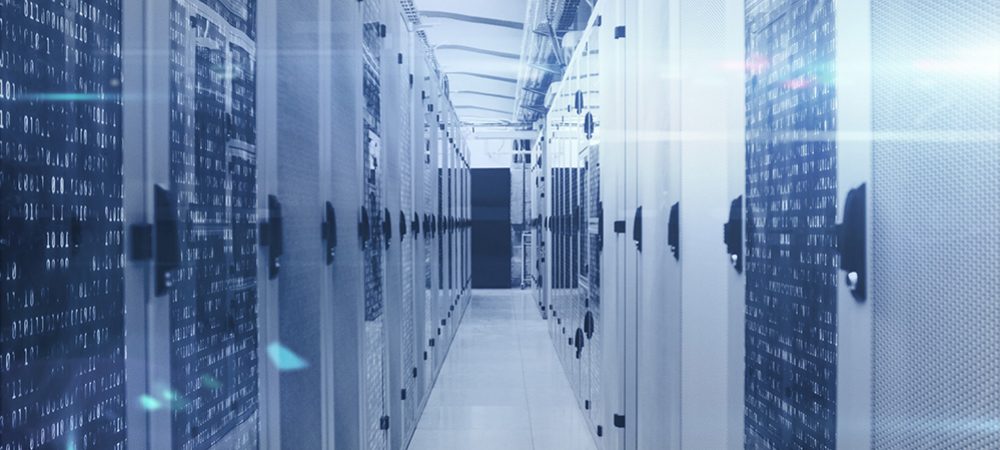On the lighter side of things we ask Andy Connor, Channel Director EMEA, Subzero Engineering, what makes him tick.
What would you describe as your most memorable achievement?
If I didn’t say meeting my wife in the industry, she would probably kill me! However, my most memorable achievement was a couple of years ago and in my previous role. We decided to enter a team in the 100KM Ghurkha Challenge, where entrants are tasked to walk 100KM across the South Downs, in under 30 hours. It’s fair to say I probably wasn’t in the peak of fitness when I signed up, but I trained hard and completed it in under 26 hours. Mentally and physically, I pushed myself through barriers I didn’t know existed and learned a lot about what I could achieve when working hard on a new goal or ambition.

What first made you think of a career in technology?
Back in the mid-nineties, a friend I had worked with some years before called me out of the blue and told me about a vacancy at a well-known peripheral’s distributor. Up until that point technology hadn’t really featured in my career plan but the role and the company sounded really interesting. I went for an interview with the CEO and got the role of Account Manager working directly with customers to build relationships and solve their pain points. Very quickly it became obvious to me how fast paced the technology sector is and how the speed of innovation enables businesses to better serve their customers. That ultimately, made me think, this is where I want to be.
What style of management philosophy do you employ with your current position?
I don’t believe that micromanagement or management by data delivers positive outcomes. Often businesses get too tied up with the detail and miss the simple ethos of any sales organisation – to build relationships, solve customer problems and to generate revenue!
I believe the best way to create an effective team who perform consistently is to make sure you surround yourself with ambitious people, empower them and trust them to do their job. You need to understand people’s strengths and play to them, while helping them develop their skills and expertise further. For example, in sales there’s a lot of talk about hunters and farmers. However, I believe this is out-dated. Real sales is about the ability to have a conversation, take your clients on a journey, solve their problems and help them meet a clear end goal. If you can achieve that while fostering a team spirit where everyone works for each other, that is the most enjoyable environment.
What do you think has emerged as the technology trend of 2021 and why?
I believe the biggest trend we’ve seen emerge is Digital Transformation, which has accelerated during the pandemic. DX can mean many different things to businesses, but if we look at the current climate, we have seen a dramatic shift in how businesses have operated their day-to-day environments during the last 16 months.
Whether it’s been an organisation supporting their staff to work from home, or a company that has had to shift its business to an online model and meet the change in demand, Digital Transformation has had a major effect on every sector possible. Data centres have been paramount in this shift and technology has had to move at a fast pace to ensure it meets end-user demands. Working in the data centre sector, I have seen unprecedented growth in the last couple of years which has brought up several challenges in itself – whether that’s power consumption, capacity requirements, the need for greater energy efficiency, or demands for more sustainability.
What do you currently identify as the major areas of investment in your industry?
If we look at the market in Europe, there’s a huge trend towards sustainability being driven by hyperscalers and by members of the colocation community. Many companies have signed up to the Climate Neutral Data Centre Pact, which requires operators to prove efficiency with measurable targets; utilise 100% renewable energy; prioritise water conservation; and embrace the circular economy by recycling servers.
On the other hand however, rack and power densities are increasing and end-users want to leverage more processing and computational power. High performance computing (HPC), GPU’s and AI technologies are placing increased demands on data centres from a performance, power and cooling perspective. This means new data centres have to be designed for sustainable operations, but be flexible to accommodate the needs of GPU’s, chip and processor power.
However, the real challenge lies within legacy facilities, which also need to be modernised and become more efficient. This is crucial in the quest for Net Zero and will help reduce operating expenditure (OPEX), energy consumption and greenhouse gas (GHG) emissions.
How do you deal with stress and unwind outside of the office?
I believe it’s really important to create a work/life balance. Working from home during the pandemic has meant this is more important than ever, so for me it means switching off at the end of the day and making a clear distinction between work life and home life.
That can be as simple as cooking for the family each night. Not only do I enjoy it, but it helps me refocus and enjoy family time. So, the lesson here is finding something that allows you to switch off, so you can start the following day refreshed and ready to go.
If you could go back and change one career decision, what would it be?
Over time there are so many decisions you make; some work out some don’t. But that’s all part of the learning process. At the time you do what you believe will drive the results you want, be it a specific role you take on, a customer you work with, or a hire you make. The important thing is to understand why it didn’t work out how you wanted, what you could have done differently and what you can learn from it. It’s unrealistic to think we will always get things right so there is nothing I would change.
What are the region-specific challenges when implementing new technologies in Europe?
It’s important to remember that Europe is not one state, it’s a region made up of different countries and cultures. That may sound obvious, but when you are looking to expand a business into Europe you need to take this into account. Within some countries it’s essential you have a local presence and understand how the locals do business. Sometimes the biggest challenge is really in understanding how you achieve this.
In a smaller and more agile company you can manage this through partnerships or potential acquisition, but you have to consider what the logistical challenges are, especially in countries that are not part of the EU. Is language going to be a barrier in explaining your technology in country and how can you work with local experts to build a team that will support customers effectively.
It’s also crucial to understand both EU and local regulations that could potentially impact your offering. One such example is Amsterdam’s drive to ensure new data centres are energy efficient, so here it’s paramount to tailor your offer to the customers needs and ensure you’re offering a solution that can support demands for energy efficiency.
What changes to your job role have you seen in the last year and how do you see these developing in the next 12 months?
For me personally it has been an interesting 12 months. Starting a new role during the pandemic is not without its challenges, especially with everything being conducted remotely. I personally cannot wait to start having face-to-face meetings, as no matter how important video calls have become, nothing beats meeting customers personally and building relationships.
From a company perspective we also have plans to increase our headcount across the region in the next twelve months and accelerate awareness of our data driven sustainability and efficiency solutions.
What advice would you offer somebody aspiring to obtain C-level position in your industry?
The great thing about our industry is it is always evolving. New technologies come and go, innovation is key to everything and with this, career opportunities are limitless. If you decide you want to move into a C-level position, the only thing holding you back is you. Do your research, constantly learn about where the market is going lead by example at all times and work hard to support your customers – the rest will come.
Click below to share this article

